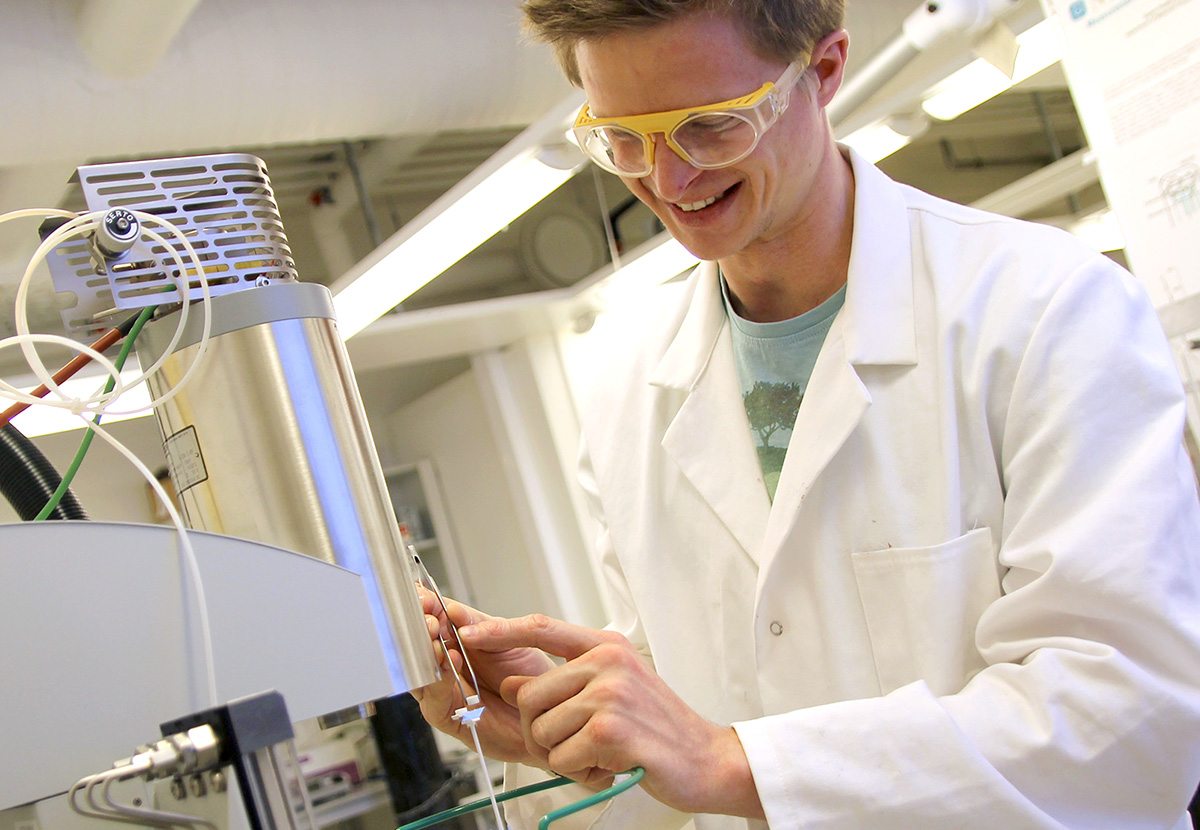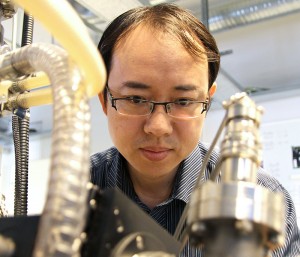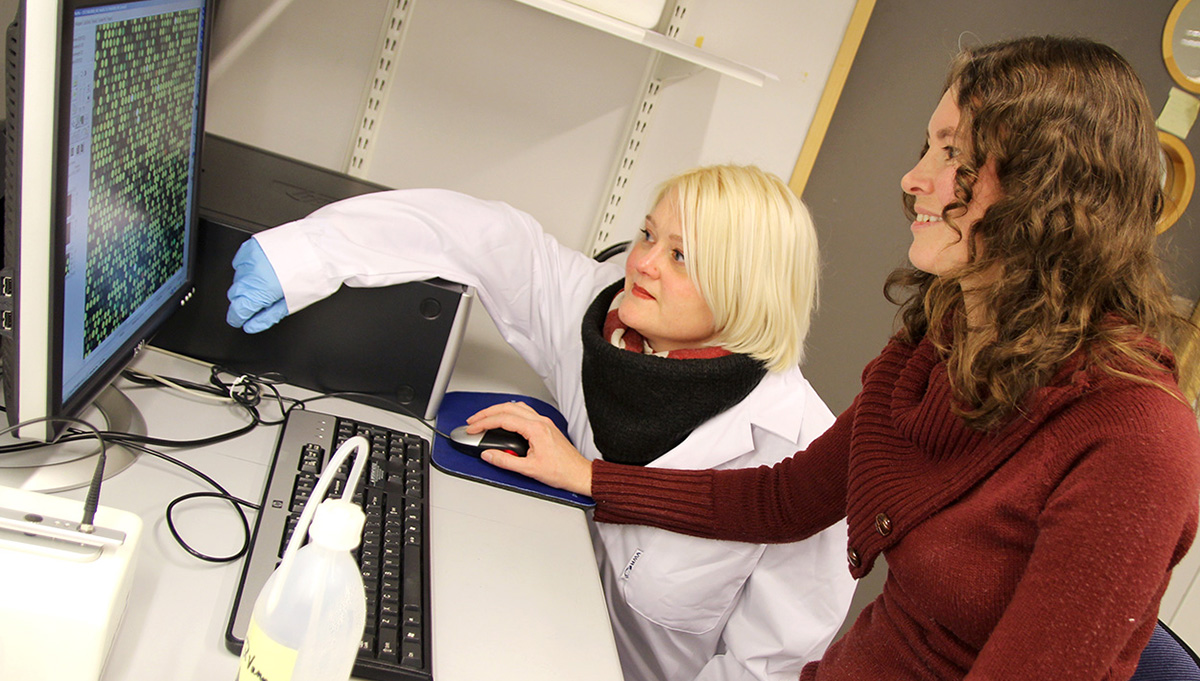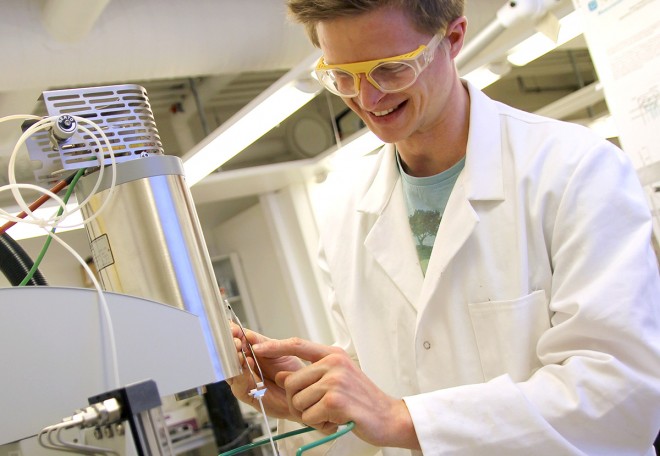
Being a scientific researcher gives you the freedom to pursue answers to questions that you, and hopefully many others, find interesting. But with freedom comes the necessity to choose:
with so many topics to pick from, how do you select which research field to devote yourself to? Once this question has been posed, a number of other ones immediately rise to the surface.
- Do I choose a research direction which is hot right now or one that has been a long-standing unsolved problem?
- Should I select a topic which is attracting much interest in my own university/country or one where the leading research groups belong to other countries?
- Is it better to choose a research area that will more easily generate funding from grants or one which I personally find more interesting even if funding will be more difficult?
Not an easy task. I’d say it is quite the balancing act, frankly, because you have at least three aspects to consider.
 First of all, you probably want to do research on something that you are personally fascinated by. Otherwise, it will be tough to find the motivation over time. Secondly, personal interest alone is not necessarily the only guideline that should be taken into account – it also seems reasonable to consider topics that will lead to a real and useful advance in knowledge.
First of all, you probably want to do research on something that you are personally fascinated by. Otherwise, it will be tough to find the motivation over time. Secondly, personal interest alone is not necessarily the only guideline that should be taken into account – it also seems reasonable to consider topics that will lead to a real and useful advance in knowledge.
For instance, I would argue that it is potentially of higher importance to identify materials that become superconducting at higher temperatures than is possible today than it is to compute an analytical expression for the 10th order correction to the energy eigenvalues of the Schrödinger equation for an anharmonic oscillator, even if you happen to be absolutely fascinated by doing perturbation theory. Thirdly, you have to consider what will be best in order build your scientific career. Some research topics are simply much more strategic than others when it comes to your chances of getting funding and applying for grants. To illustrate this point, think of research problems categorized by their risk and their potential gain. Let me give two examples.
Low risk – low gain
Find an exact solution of the Lagrange equations for a classical particle moving in a potential which has no realization in nature and which does not require any new or interesting mathematical techniques.
High risk – high gain
Develop a model for the normal-state of the high-Tc superconducting cuprates and the underlying microscopic mechanism that generates superconductivity. Many would argue that this
is one of the most important unsolved problems in condensed matter physics. Several brilliant minds have dedicated themselves to this topic over the last 30 years, yet a solution
remains elusive. Certainly a very high risk problem, as a solution is not guaranteed by any means – but the potential gain is equally high, no doubt worthy of a Nobel prize in Physics.
What should you go for then? Well, it seems clear to me that the research field you devote yourself to should have a potentially high gain in order for it to be worthwhile. A high risk
associated with it could make it more suitable for the most prestigious grants such as ERC funding, although it still has to be realistic.
So there you have it – ideally, you should then pick something that you find very interesting, something which will clearly move the research front forward and contribute to an expansion
of useful knowledge compared to what was known previously, and something that will put you in a good position to apply for research funding and grants. If you can find something
matching all these criteria, you have an excellent starting point.

Another aspect that will influence what kind of research direction you choose is which career stage you are in. As a masterstudent, the emphasis is on learning new physics and techniques,
and so a low risk – low gain project is perfectly viable. Proceeding with a Ph.D degree, the risk taking has to be higher since you are now supposed to make a real contribution to the
research community and so it is no longer a good idea to play things completely safe. You get the idea: the importance of moving toward high risk – high gain projects increases as you
continue along your career trajectory.
Some food for thought, hopefully. Stepping outside of the comfort zone and embarking on a research journey which you don’t yet know the outcome of can be scary, but the reward can make it
very worthwhile. And as with many other things in life, the journey itself will be very rewarding in itself.
